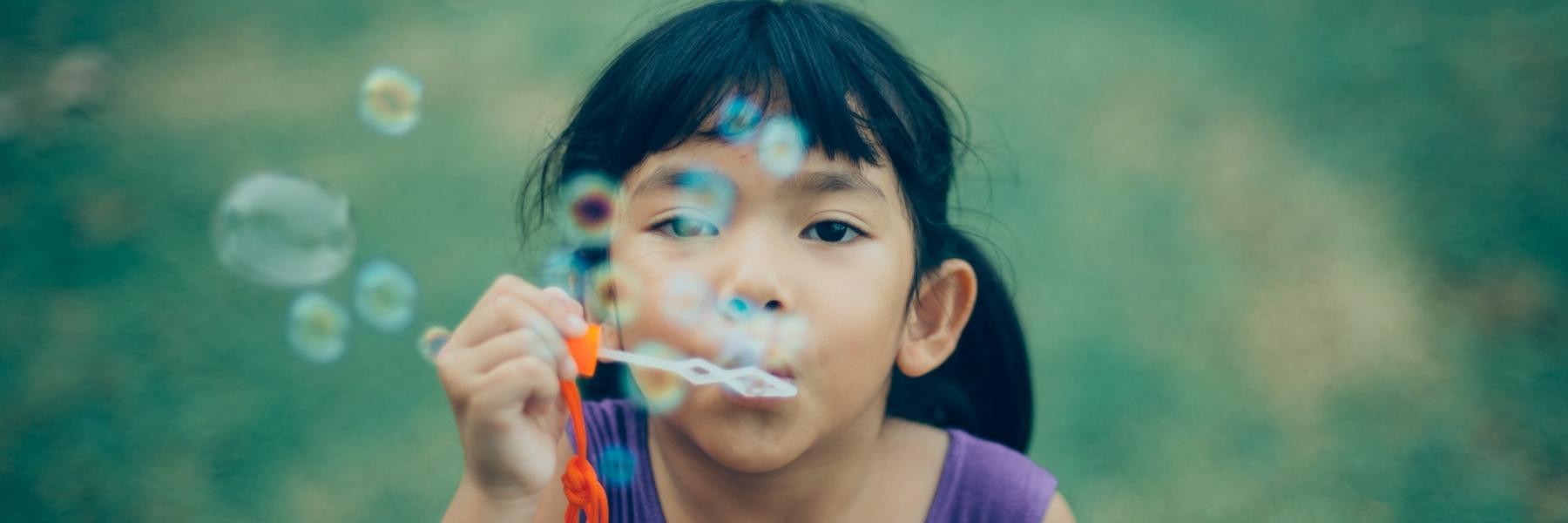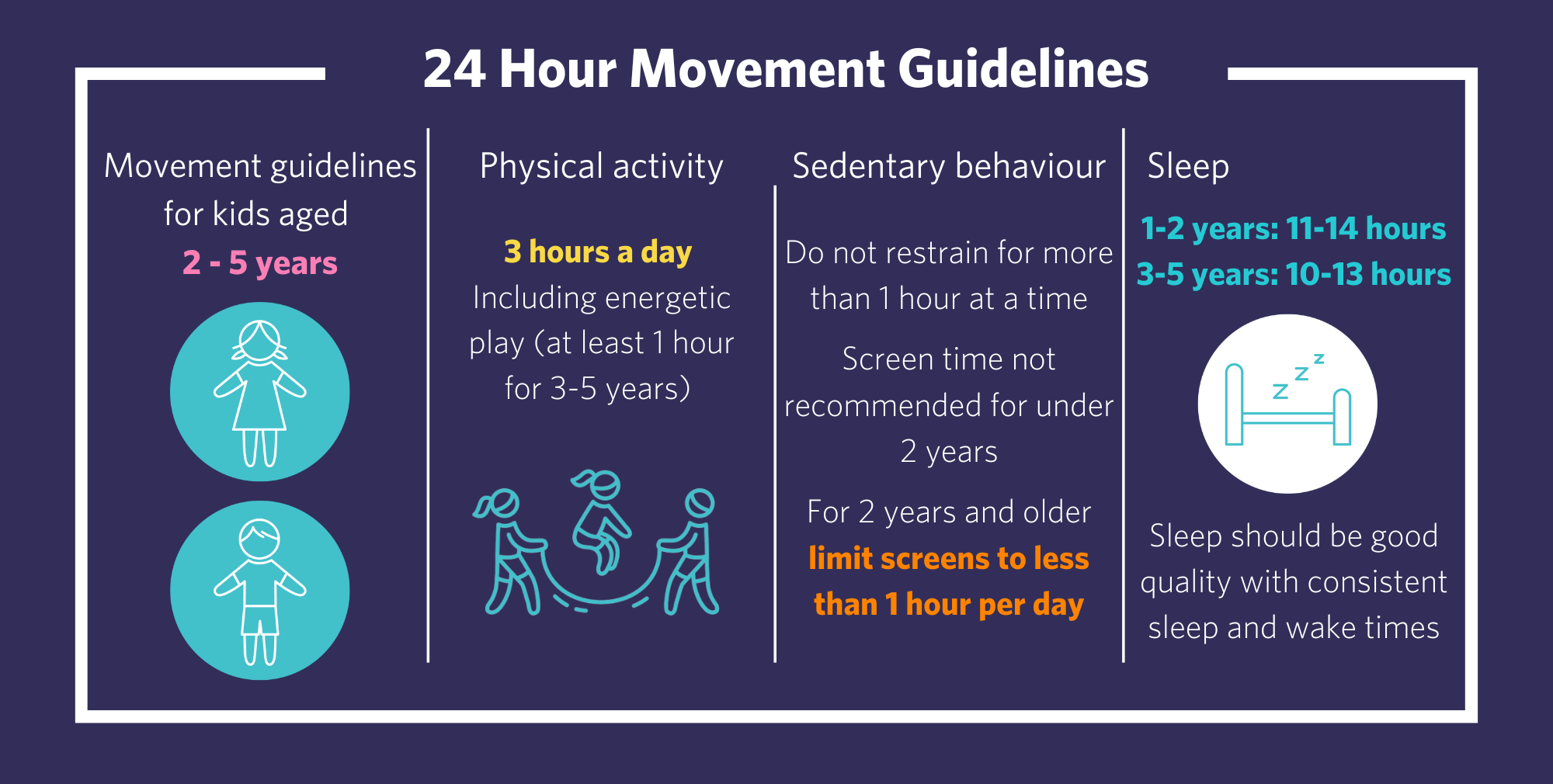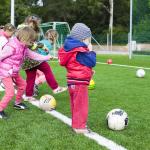
Play Options
The Australian Government has developed the 24 Hour Movement Guidelines for the Early Years to promote a balance between physical activity, sedentary behaviour and time spent sleeping. This balance is important for health and wellbeing.

Physical activity
Playing outside can help your child feel more confident around others and in different environments. Unstructured play is the best form of play for young children, because it allows them to use their imagination, try different things and move at their own pace. Play will allow your child to practice basic movement skills that they can build on to learn more complex skills as they grow. These basic skills are known as the fundamental movement skills and include skills such as running, jumping, catching, and throwing. For more information on these skills see Fundamental Movement Skills.
When children learn the basic skills well, it gives them the confidence and ability to participate in more active play, team sports and PE lessons as they grow older.
As children get older, they will get more creative and the way they play will change. Having some simple toys available will give your child a chance to be creative and develop some of these basic skills.
-
Large light things like cardboard boxes, buckets or balls
-
Containers, pots and pans
-
Rope
-
Hoops
-
Tunnels
-
Chalk, playdough and other craft supplies
-
Balls
-
Frisbees
-
Simple puzzles
If you are worried about your child’s play talk to your GP or Child Health Nurse.
Sedentary behaviour
Allowing children to move freely and play is important for building strength in muscles and bones. It is not recommended to restrain children in highchairs, car seats or strollers for more than one hour. Sitting for long periods and too much screen time should also be avoided.
Some sedentary play activities, however, are also very important for your child, including:
-
Reading and storytelling
-
Singing
-
Building blocks
-
Drawing
-
Puzzles
-
Painting
-
Craft
For more information
-
Raising Children Network – How play helps child development
-
ACT Health – Kids at Play Active Play
-
Munch & Move – Simple, fun ways to get young children active each day
-
Resourcing Parents – Love Talk Sing Read Play



